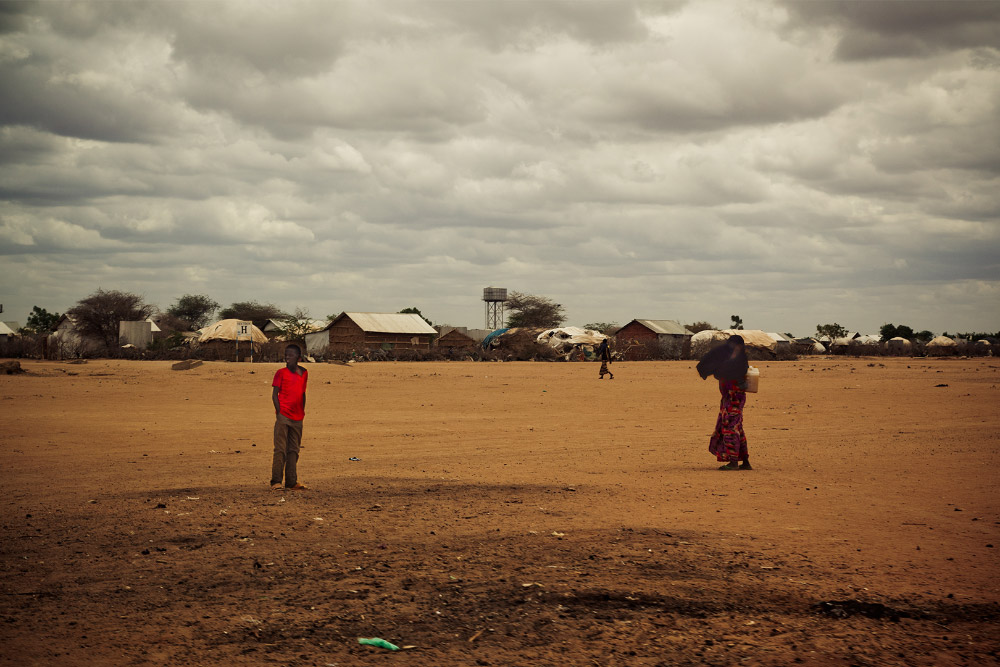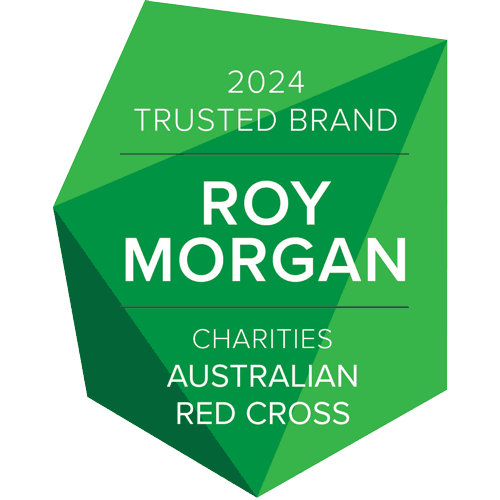Refugee is a circumstance, not an identity
Harnessing the collective strength of our communities to build a brighter, more equitable future for all.

by Ismail Ibrahim, State Manager, Migration Support Program, Australian Red Cross
There is a Somali saying "Iskaashato ma kufto" which translates to "those who cooperate do not fall".
If there is one thing I have learnt through my experience as a refugee and working with others, none of us can go it alone, and the actions of others can be what gets us through.
I’ve also learned that people of refugee status may be empty-handed, but they are not empty-minded.
Growing up in Somaliland, my childhood was marked by the beauty of nature and the richness of our heritage. It was an ordinary yet fulfilling upbringing, a time of peace, and the establishment of strong cultural and educational foundations that have shaped my life.
Even when my family moved to the United Arab Emirates, I continued to thrive in a positive environment, building on the strong foundations of my formative years, and the deep ties we had to our culture and family back home.
Everything changed when I turned 18 and there began an escalation of conflicts in Somaliland and Somalia. I witnessed the devastating impact of violence and instability on our community and family members. Many ordinary Somalis were faced with the threat of persecution from our own government.
This conflict shattered the tranquillity of my upbringing, leaving a landscape tainted with bloodshed and loss. Amid the chaos, my family fled to seek refuge in Ethiopia, forced to abandon the remnants of a life we cherished.
Despite the escalating turmoil in my homeland, my focus remained steadfast on my education. Upon reaching university age, I moved to Aleppo, Syria, where I was surrounded by like-minded people sharing aspirations for a free and progressive Somalia. Yet, the echoes of conflict reverberated, casting a shadow over our lives.
Stranded in Syria as a student, I found myself stripped of all rights, targeted by my own government and forced into statelessness. It was a harrowing experience, witnessing the violence and atrocities committed against my people, including my own family and close friends.
It was while I was in Syria that I had the opportunity to use my own experience to work firsthand with people facing the harsh realities of life as a refugee. Volunteering for the United Nations High Commissioner for Refugees, I was able to use my multilingual skills speaking Somali, English and Arabic to support refugees from diverse backgrounds, gaining invaluable insights into the complexities of the refugee experience.
I had my own experiences to carry, but grew a deeper understanding of the limited options a person in a refugee situation may have to escape their situation.
Being a refugee is not a choice; it is a situation someone is forced into after fleeing their home country because they have a well-founded fear of persecution.
Similarly, being a refugee is not who someone is, it's an experience someone has.
It may be easy to think of people with a refugee background as lucky to have a second chance and be part of life in Australia, or another country. However, the loss survivors have experienced - and have to live with for the rest of their lives - is not always fully understood.
How do you rebuild when you’ve lost almost everything? The resilience of refugees to start again, often in countries they’ve never been to, where they don’t know anyone or speak the same language, is a commendable achievement of resilience and hope for a better future.
People with refugee backgrounds are survivors, with huge potential to contribute to society.
I gradually found my footing in New Zealand and then Australia, but it was not without its challenges. From the initial honeymoon period, filled with hope and excitement for my new life, to grappling with feelings of displacement. I confronted cultural barriers and systemic challenges but was determined to forge a path forward, establishing myself as a professional leader in mainstream Australasia and in the humanitarian sector.
This was made possible by the generosity of people surrounding me at work, socially, and through further education.
No one can go it alone and this is especially true for refugees - the actions and attitudes of others have a profound impact on their experience, something I found out first-hand.
Through my personal journey as a former refugee, and my professional experience with the United Nations High Commissioner for Refugees, Australian Red Cross and other community services organisations, I have gained invaluable insights into the complexities of the refugee experience. I developed a deeper understanding of the human spirit and the resilience of those facing adversity.
People of refugee status may be empty-handed, but they are not empty-minded.
Reflecting on my experiences, I am reminded of the countless individuals throughout history who have made profound contributions to humanity despite facing challenging obstacles. Let us remember that Albert Einstein was a refugee! His story serves as a powerful reminder of the resilience and potential within each of us to effect positive change in the world.
As I continue on this journey leading positive change, I invite others to join me in creating a more inclusive and compassionate society, where people of refugee status, people from refugee backgrounds and newcomers are welcomed with open arms and given the support they need to thrive.
Together, we can harness the collective strength of our communities to build a brighter, more equitable future for all.
Thank you for joining me on this journey.
Refugee Week takes place from 17-23 June 2024.
Learn more about how you can participate navigate_next
Charity donations of $2 or more to Australian Red Cross may be tax deductible in Australia. Site protected by Google Invisible reCAPTCHA. © Australian Red Cross 2025. ABN 50 169 561 394
